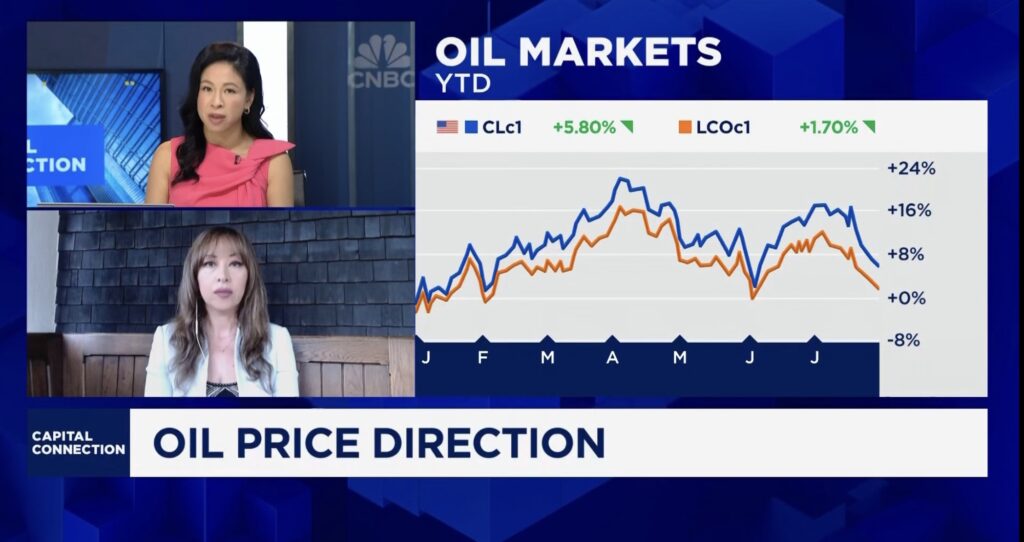In this interview given to Emily Chan Tan from CNBC, Dr. Carole Nakhle, CEO of Crystol Energy, discusses the outlook of oil markets in context of the rising tensions in the Middle East.

Key takeaways:
– In recent years, oil markets seem to have broken with their long established tradition. Not long time ago, if the Middle East sneezed, the rest of the world would catch a cold – widespread panic and spikes in oil prices which would remain elevated for some time. This is not the case today.
– What is happening in the Middle East comes on top of other geopolitical developments that also ought to impact oil markets including the Ukraine war (involving Russia one of the largest oil producers in the world), the Red Sea attacks (affecting a major trade route), and Venezuela’s protests.
– While geopolitics still matter, several factors have lessened their impact. These include the absence of significant supply disruptions, healthy supply growth outside the region (and OPEC+) led by the U.S., concerns about demand growth—especially from China—large spare capacity, and the fact that oil is not as crucial to the global economy as it was a few decades ago. Today, oil intensity is half of what it was in the 1970s.
– Venezuela’s importance to global oil markets has faded away with declining investment and production. It illustrates that what is below ground does not necessarily guarantee performance above ground. The U.S. sits on the 9th largest proved oil reserves yet is the world’s largest oil producer.
Related Analysis
“Oil markets: Relative stability amid geopolitical strife“, Dr Carole Nakhle, Feb 2024
Related Comments
“Could the Red Sea remain a no go route for years?“, Dr Carole Nakhle, Feb 2024
“Overview of Oil markets and the path ahead for OPEC+“, Dr Carole Nakhle, Dec 2023








